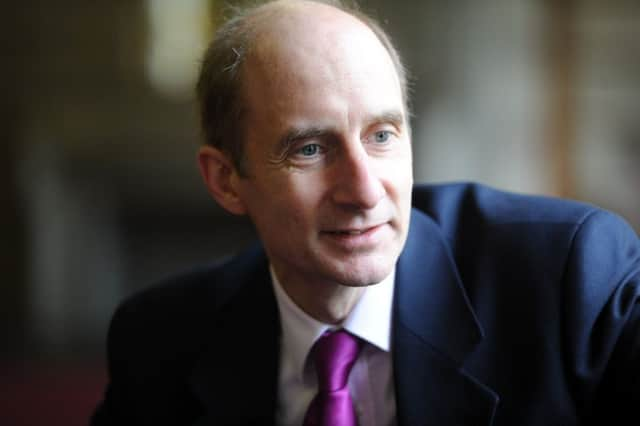Opinion: Student success is tarnished by political attacks


The anger comes cloaked in a wave of understandable outrage about the imposition of not only student fees but their system of repayment (which I am on the record as having utterly opposed since its introduction and on which topic I have often written to express my disagreement).
After all, generational injustice is rising and no amount of political soft soap can get away from over £50k of debt at Student Loan Company interest rates of 6.1 per cent, especially when this effectively puts a graduate on a relatively modest salary into a high-rate tax band before they get anywhere near to being able to think about that other bastion of British life – a mortgage for a home of your own.
Advertisement
Hide AdAdvertisement
Hide AdThe national ‘debate’ about universities is a mess and duplicitous, reflecting the political ambitions of individuals more than the truth. The fact that fees were introduced as the Government removed central funding, effectively shifting costs from the public purse to the individual, is barely mentioned.
Nor is the fact that loan interest rates were designed to be high to incentivise commercial providers to enter what some were calling a market.
The critics also fail to acknowledge that the loss of public funds for teaching facilities and labs is now subsidised by the very international students that some politicians also wish to limit. And so the narrative of the greedy vice-chancellor feasting off the young was born. The fact that most are scholars, scientists, medics, with international reputations which would command far higher salaries overseas, is scarcely mentioned except by the much-maligned remuneration committees.
So, in recent weeks, I have watched pride in our great universities which teach the UK and the world’s most talented – which drive innovation and partner companies the UK desperately needs for its economy – exposed to an acid attack of misinformation from former politicians and some journalists as reputations are trashed.
Advertisement
Hide AdAdvertisement
Hide AdI would ask that readers of newspapers and those who listen to radio interviews to think twice about why we are talking about universities in the way we are. And then we must think hard about the real issues and what we need to do.
For indeed there are many problems in the UK and its system of education and I am the last person to argue for no change. The threats are many and not only student debt.
Questions include what we teach, not just for the half of young people who now attend UK universities, but those who don’t. Where is the German-style investment in the highest quality training we so desperately need for our economy? Where are the high-quality apprenticeships and world-class technical courses which lead to well-paid careers? There are some, but nowhere near enough.
And what about our place in research globally, especially in crucial areas such as science, engineering, medicine and technology? I worry, too, about international students who have become so crucial to our universities and cities. The reports get this totally wrong. International students are not some walking cheque book, they are the brilliant students who support our ability to remain world class, including as researchers themselves. It would surely be madness to alienate them, and yet on and on the dangerous narrative of immigration trundles.
Advertisement
Hide AdAdvertisement
Hide AdAnd yes I worry about fees, about generational injustice and an imbalance in society’s resources. Knocking vice-chancellors won’t make this go away nor will trashing the pay of university leaders and medical scholars who also serve our NHS, it will just make it harder to recruit good ones in the future.
Our hospitals here in Sheffield and across the UK are staffed by its trainee doctors, great medical research is being led by scholars who are crucial to the health of the future and who are rightly paid accordingly. Local economies in South Yorkshire, Leeds and Huddersfield are lifted and jobs created by the investment of international students and global businesses coming to the UK for no other reason than the great teaching and research which exists in our universities.
Michelle Obama once said, when they go lower, we go higher. Ask me what a university is and I will think of the achievements of a myriad of brilliant scholars and students who have built these wonderful institutions over decades, even centuries. If you are looking for the villains of society, this is not the place to target.
Professor Sir Keith Burnett CBE is President of the Science Council and Vice-Chancellor of the University of Sheffield.